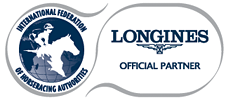Following a meeting of the International Federation of Horseracing Authorities (IFHA) Executive Council on 8 October 2019, Louis Romanet, Chairman of the Federation, announced, effective from that date, the appointment of a new Chairman of the Gene Doping Control Subcommittee of the Advisory Council on Equine Prohibited Substances and Practices. Dr Natasha Hamilton, the Director of the Equine Genetics Research Laboratory in Scone, New South Wales, was named Chairman of the Gene Doping Control Subcommittee, and she replaces Dr Kanichi Kusano, Manager Administrative Division, Racehorse Hospital Ritto Training Centre, of the Japan Racing Association. Dr Kusano remains a member of the Subcommittee.
IFHA Chairman Louis Romanet:
“It continues to be vitally important that racing and breeding authorities are advised of best regulatory practice of gene therapies and are equipped with sound strategies and guidelines to prevent the misuse of such therapies.
“Dr Kusano has served the IFHA Gene Doping Control Subcommittee with distinction since the Subcommittee’s establishment in 2016, and I’m pleased that he remains a participating member. The IFHA welcomes Dr Hamilton as the new Chair of this important Subcommittee, and we are confident that she will skillfully lead its members in their mission to protect the integrity of horseracing and the Thoroughbred breed by examining genetic and cellular therapies with respect to possible welfare, safety, performance and breeding outcomes.”
About Dr Natasha Hamilton
Dr Natasha Hamilton commenced as the inaugural Director of the Equine Genetics Research Laboratory in Scone, New South Wales in January 2018 and reports to the Operations CEO of Racing Australia. Previously, Dr Hamilton spent 10 years teaching neurophysiology and equine science at the University of Sydney. Her research interests include the genetics of health, performance and attrition in racehorses. Her current projects include investigating the genetics of soundness in racehorses with particular focus on the relationship between bone genetics and catastrophic fracture; investigation of factors contributing to bleeding; and developing a world first equine Gene Doping Detection test. Dr Hamilton is a current member of the International Equine Genome Mapping Workshop and the International Society of Animal Genetics, and is an associate member of the International Group of Specialist Racing Veterinarians. Since 2017, Dr Hamilton has been a contributor to the work of the IFHA's Gene Doping Control Sub-Committee as a member, and she commenced as the group’s Chairman in October 2019.
About the IFHA Gene Doping Control Subcommittee
In March 2016, the IFHA Executive Council created the Gene Doping Control Subcommittee of the Advisory Council on Equine Prohibited Substances and Practices in order to advise racing and breeding authorities on the regulation of gene therapies and to assist in the formulation of strategies and guidelines to prevent the misuse of such therapies. Its mission statement is to safeguard the integrity of horseracing and the Thoroughbred breed by evaluating genetic and cellular therapies with respect to potential welfare, safety, performance and breeding effects.
The primary objectives of the Gene Doping Control Subcommittee are to:
• clearly define ‘gene doping’, ‘gene therapy’, ‘cellular therapy’ and 'cellular doping'
• give consideration to present and future ‘gene therapies’ and 'cellular therapies', as required by racing and breeding authorities
• make clear which genetic and cellular practices have no place in horseracing and breeding
• provide guidance for the proper control of legitimate ‘gene and cellular therapies’
• suggest revision to Articles 6, 12 and 13 of the International Agreement of Breeding, Racing and Wagering, where necessary
• recommend systems and policies for the detection of gene and cellular doping in horseracing
About IFHA
The International Federation of Horseracing Authorities (IFHA) is the world peak body for the international sport of Thoroughbred racing. Its members are the national racing authorities across the globe which stage Thoroughbred races.
Major areas of the IFHA’s activities include:
• Making and amending the International Agreement on Breeding, Racing and Wagering (the IABRW)
• Policy development relating to welfare and safety of horses and riders
• International Race Planning and Grading (“black type”)
• World Rankings
• The fight against Equine Prohibited Substances and Practices
• Harmonization of Race Day Rules
• Certification of IFHA Reference Labs
• Fostering commercial development of the racing industry globally
The IFHA is a foundation member with Fédération Equestre Internationale (FEI) of the International Horse Sports Confederation and is affiliated to the World Organisation for Animal Health (OIE). |



